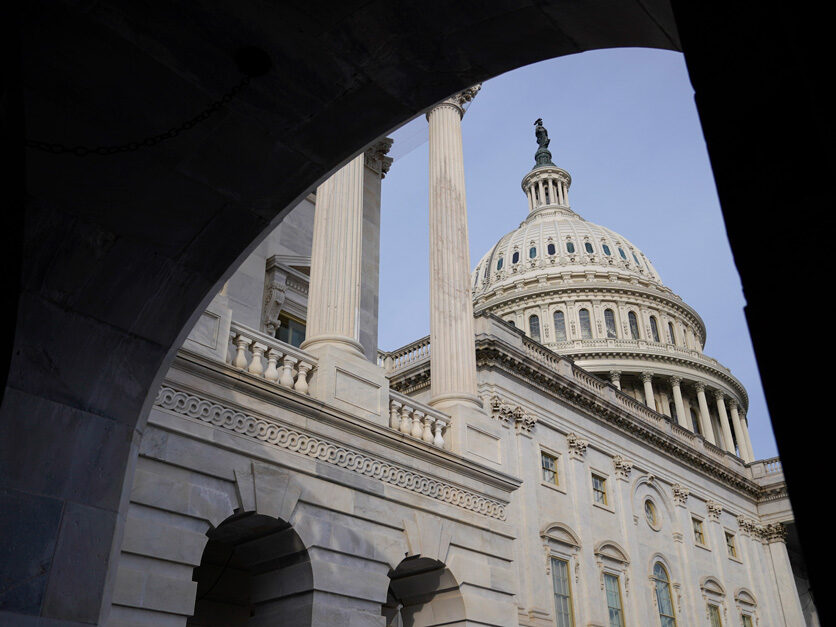Key Takeaways
- The House passed a GOP budget reconciliation bill aimed at funding farm programs while cutting SNAP spending.
- The bill includes tax benefits for farmers and small businesses, alongside increased work requirements for SNAP eligibility.
House Advances Budget Bill Aimed at Farm Programs
House Republicans have made significant progress toward implementing President Donald Trump’s policy agenda with the passage of the GOP’s sweeping budget reconciliation bill. This bill, known as the One Big Beautiful Bill Act, secured approval in the House with a narrow party-line vote of 215-214. A key aspect of the legislation is its funding for essential elements of the farm bill, which will be financed by a projected $295 billion cut to the Supplemental Nutrition Assistance Program (SNAP).
In addition to farm-related funding, the bill extends critical tax benefits that are widely utilized by both farmers and small businesses. It now awaits consideration in the Senate, where it could undergo considerable changes. Senate GOP leaders have not indicated whether to route the House-passed bill through committees for modification or to bring it to the Senate floor directly. However, the reconciliation process permits the bill to advance with a simple majority, avoiding the potential for a Democratic filibuster. Should the Senate make modifications, the revised bill would return to the House for further approval.
House Speaker Mike Johnson successfully secured crucial votes from Northeast moderates and hardline conservatives by agreeing to enhance state and local tax deductions while simultaneously accelerating the phase-out of some tax credits for renewable energy established by the Inflation Reduction Act (IRA). Johnson claimed, “This bill gets Americans back to winning again, and it’s been a long time coming,” emphasizing its significance. He expressed confidence in delivering the finalized legislation to Trump’s desk by July 4.
The bill includes major provisions for farmers, with a notable $56.4 billion increase directed toward farm bill programs. This encompasses increased reference prices in the Price Loss Coverage program and expanded premium subsidies for supplemental crop insurance coverage. Furthermore, the bill integrates IRA conservation funding into the farm bill baseline while lifting restrictions on funds designated for climate-smart practices.
Tax benefits within the bill will see the Section 199A deduction for business income raised from 20% to 23%, alongside enhanced business expensing allowances. Businesses will be allowed to write off up to $2.5 million in equipment and software costs, with a phase-out beginning once expenditures exceed $4 million. Notably, the estate tax exemption will increase to $15 million for individuals and $30 million for couples, indexed to inflation.
However, the bill’s fiscal benefits for farming and business initiatives come at a significant cost to SNAP. Critics, particularly anti-hunger organizations, warn that certain measures could disqualify millions from the program, increasing food insecurity. Stricter work requirements for able-bodied adults without dependents are set to save taxpayers $92.5 billion over the next decade, as per the Congressional Budget Office. These requirements will extend eligibility limits, proposing a shift from ages 54 to 64, and adjusting dependent definitions from under 18 to under 7.
A controversial component of the bill transfers a larger share of SNAP benefit and administrative costs to states. Currently, the federal government covers all program benefit costs while sharing administrative expenses equally with states. The proposed changes would necessitate that states assume 75% of administrative costs, raising concerns about states’ ability to manage these financial burdens.
Democratic leaders and state officials have voiced concerns that not all states would effectively manage the increased expenses, potentially leading to restricted access to SNAP benefits. House Democrats criticized the bill for being fiscally irresponsible, fearing it would lead to heightened budget deficits and adversely affect low-income populations through cuts to both Medicare and SNAP. House Minority Leader Hakeem Jeffries labeled the legislation a “GOP tax scam,” arguing it would negatively impact healthcare and nutritional benefits.
With additional concerns from some Senate Agriculture Committee members regarding the state cost-share proposal within SNAP, the bill faces significant roadblocks in the Senate. The Senate’s revisions must also comply with the Byrd rule, which could restrict how various farm bill elements are incorporated.
The content above is a summary. For more details, see the source article.















